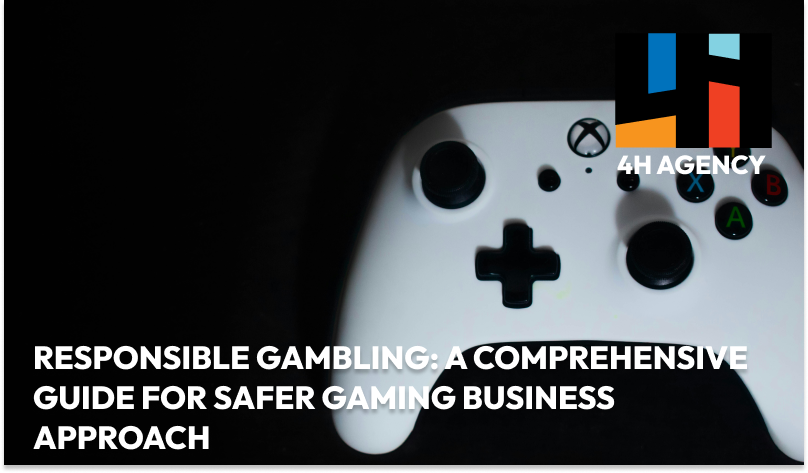Responsible Gambling – What and Why?
Responsible gambling (also named responsible gaming, safer gambling, safe gaming, etc.) refers to a set of practices and policies implemented by operators, regulators, and related institutions to ensure that gambling remains a safe, transparent, and controlled form of entertainment. The concept of responsible gaming includes both individual behavior and structural safeguards embedded in gambling environments. For individuals, this means gambling for entertainment while understanding the risks and maintaining control over time and money spent. For governments and operators, responsible gambling means fostering an environment where players can gamble safely and are protected from harm.
The responsible gaming meaning extends beyond player behavior. It also entails clear accountability for industry stakeholders to minimize gambling-related harm and respond to social concerns. Preventing underage gambling, protecting vulnerable individuals, and ensuring access to support services are central to this framework. The rise of digital platforms has only increased the need for responsible gambling standards across jurisdictions.
The responsible gaming meaning extends beyond player behavior. It also entails clear accountability for industry stakeholders to minimize gambling-related harm and respond to social concerns. Preventing underage gambling, protecting vulnerable individuals, and ensuring access to support services are central to this framework. The rise of digital platforms has only increased the need for responsible gambling standards across jurisdictions.
Key Principles of Responsible Gaming
Responsible gaming relies on a defined set of principles embedded in operations, products, and marketing practices:
These measures are aligned with responsible gaming regulations in major jurisdictions and serve as minimum expectations for licensed operators.
- Prevention of underage gambling through strict age verification.
- Protection of vulnerable users by monitoring behavioral patterns and identifying signs of problematic gambling.
- Self-exclusion options to allow players to temporarily or permanently exclude themselves from gambling.
- Limit-setting tools to let players control deposits, losses, and wagering.
- Access to support resources including helplines and treatment centers.
- Clear and educational communication on the risks of gambling and the importance of informed play.
These measures are aligned with responsible gaming regulations in major jurisdictions and serve as minimum expectations for licensed operators.
Responsible Gambling Tools
Responsible gambling tools are either operator-provided, player-initiated, or regulator-mandated. Their shared objective is to foster safer gambling environments.
Operator-driven tools
- Reality checks: Pop-ups that alert players to time spent or money wagered.
- Behavioral risk analysis: Self-assessment tools that identify problem gambling tendencies.
- Visible information: Permanent access to responsible gambling information and links to help services, etc.
Player-driven tools
- Gaming breaks and pauses: Short voluntary suspensions initiated by players.
- Deposit, loss, and session limits: Caps on financial exposure and time spent.
- Self-exclusion programs: Temporary or permanent restriction from gambling platforms, etc.
Regulator-driven tools
- Using the capabilities of the healthcare system.
- Creating and supporting "hotlines" for players who have encountered the problem of gambling addiction.
- Limiting marketing communication standards, etc.
Global Responsible Gaming Regulations
Regulatory standards vary, but all jurisdictions aim to reduce harm and uphold safe gambling practices:
Regulators also collaborate with health systems and support services to enhance the responsible gaming framework. In several jurisdictions, operators are required to fund research and treatment programs.
It should be noted that responsible marketing is a core pillar of safer gambling. Operators must avoid targeting self-excluded users or vulnerable populations and comply with content regulations:
- UK: Mandatory deposit limits, reality checks, and GAMSTOP self-exclusion.
- Malta: Time visibility in games, awareness messaging, and access to support.
- Sweden: Self-assessment tools and mandatory self-exclusion.
- Denmark: Centralized ROFUS self-exclusion system and marketing compliance checks.
- United States: State-level rules, often requiring responsible gambling messages and advertising restrictions.
Regulators also collaborate with health systems and support services to enhance the responsible gaming framework. In several jurisdictions, operators are required to fund research and treatment programs.
It should be noted that responsible marketing is a core pillar of safer gambling. Operators must avoid targeting self-excluded users or vulnerable populations and comply with content regulations:
- Include responsible gambling messages in all advertisements.
- Avoid glamorizing gambling or suggesting guaranteed success.
- Refrain from targeting minors or high-risk groups.
- Reference helplines and self-help resources visibly.

Also, responsible gaming is not only a regulatory obligation but a business imperative where brand reputation improves when operators are viewed as proactive and ethical, customer loyalty strengthens among players who feel protected and respected, risk management is enhanced by reducing the likelihood of legal and reputational crises, and investor confidence grows in jurisdictions and operators with mature responsible gaming practices.
Research consistently shows that players who engage with responsible gaming tools are more likely to remain long-term customers. Operators investing in safer gambling features benefit from sustained engagement, higher trust, and regulatory goodwill.
Implementation in Practice: Step-by-Step
Responsible gaming requires a collective effort from operators, regulatory bodies, and even players to implement effective measures that protect people from harm.
The most popular and traditional ways of implementing responsible gambling tools for operators include responsible gaming policies, provision of tools and resources, such as self-exclusion programs, time and spending limits, access to support services, monitoring and intervention, and collaboration with regulatory bodies. The gambling landscape is constantly changing, so it’s important for operators to regularly review their responsible gaming policies. This allows them to stay up to date with the latest regulations and industry’s best practices
The most popular and traditional ways of implementing responsible gambling tools for operators include responsible gaming policies, provision of tools and resources, such as self-exclusion programs, time and spending limits, access to support services, monitoring and intervention, and collaboration with regulatory bodies. The gambling landscape is constantly changing, so it’s important for operators to regularly review their responsible gaming policies. This allows them to stay up to date with the latest regulations and industry’s best practices
Basically, there is the following guide on how to implement responsible gambling measures in the operator’s work
- Integrate responsible gambling features in the product design, including self-exclusion, limit-setting, and time-tracking tools.
- Ensure transparency and accessibility of responsible gaming information across all user interfaces.
- Monitor player behavior to identify risky patterns through data analytics and respond with interventions.
- Train internal teams to recognize signs of harm and deliver appropriate support.
- Comply with responsible gaming regulations across jurisdictions, including marketing restrictions and reporting requirements.
As the gambling industry evolves, the commitment to responsible gaming must remain a priority, ensuring that players can engage in gambling activities responsibly and with a full understanding of the associated risks. The future of responsible gambling will be soon shaped by technology and behavioral science, like AI-driven monitoring for early detection of harmful patterns, dynamic educational tools embedded in user experiences, or stricter regulation on advertising, product design, and accessibility.
Therefore, responsible gambling must be embedded in every aspect of the gaming ecosystem. Operators, regulators, and support services each play a role in building environments where players can enjoy gambling safely. For industry to thrive, responsible gaming cannot be optional. It is a foundational practice that ensures commercial viability, regulatory compliance, and, most importantly, player protection.
Therefore, responsible gambling must be embedded in every aspect of the gaming ecosystem. Operators, regulators, and support services each play a role in building environments where players can enjoy gambling safely. For industry to thrive, responsible gaming cannot be optional. It is a foundational practice that ensures commercial viability, regulatory compliance, and, most importantly, player protection.



